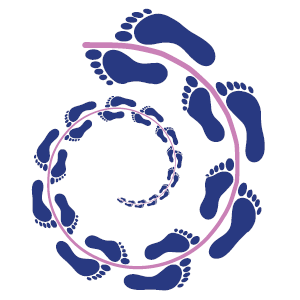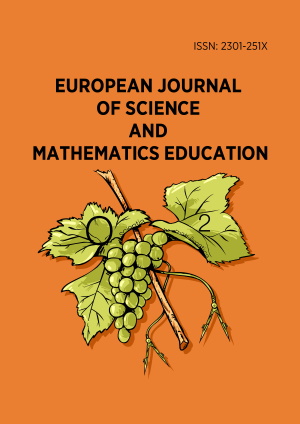Research Article
Following up on the impact of a distance learning teachers’ professional development program in science: Α longitudinal case study
More Detail
1 Democritus University of Thrace, Dragana, Alexandroupolis, Evros, GREECE* Corresponding Author
European Journal of Science and Mathematics Education, 11(4), October 2023, 754-769, https://doi.org/10.30935/scimath/13721
Published Online: 24 September 2023, Published: 01 October 2023
OPEN ACCESS 2144 Views 984 Downloads
ABSTRACT
This paper follows up on the impact of a distance learning teachers’ professional development program on their self-efficacy beliefs in the long term. Specifically, it measures the personal self-efficacy beliefs and outcome expectancy beliefs of a group of 122 in-service elementary teachers before the start of the program, immediately after its completion, and two years later. The quantitative was used as the data collection method of the research. The results advocate that both the personal self-efficacy beliefs and the outcome expectancy beliefs of the research participants improved immediately after the program was completed and the former remained relatively improved two years after completion of the program, while the latter returned to the levels they had had before attending the program. Recommendations are made for future research.
CITATION (APA)
Tzovla, E., & Kedraka, K. (2023). Following up on the impact of a distance learning teachers’ professional development program in science: Α longitudinal case study. European Journal of Science and Mathematics Education, 11(4), 754-769. https://doi.org/10.30935/scimath/13721
REFERENCES
- Abdulghani, H. M., Irshad, M., Haque, S., Ahmad, T., Sattar, K., & Khalil, M. S. (2017). Effectiveness of longitudinal faculty development programs on MCQs items writing skills: A follow-up study. PLoS ONE, 12(10), e0185895. https://doi.org/10.1371/journal.pone.0185895
- Adams, R. D., & Craig, J. R. (1981). A survey of undergraduate teacher education evaluation practices. In S. M. Hord, & R. D. Adams (Eds.), Teacher education program evaluation, theory, and practice. R&D Center for Teacher Education.
- Agu, P., & Ramsey, J. (2018). A validation of science teaching efficacy belief instrument for biology teachers. Journal of Education & Social Policy, 5(4), 146-154. https://doi.org/10.30845/jesp.v5n4p18
- Aji, C., & Khan, M. (2019). A flight simulator-based active learning environment. Open Journal of Social Sciences, 7, 192-203. https://doi.org/10.4236/jss.2019.73016
- Bandura, A. (1993). Perceived self-efficacy in cognitive development and functioning. Educational Psychologist, 28(2), 117-148. https://doi.org/10.1207/s15326985ep2802_3
- Batiza, A. F., Gruhl, M., Zhang, B., Harrington, T., Roberts, M., LaFlamme, D., Haasch, M. A., Knopp, J., Vogt, G., Goodsell, D., Hagedorn, E., Marcey, D., Hoelzer, M., & Nelson, D. (2013). The effects of the SUN project on teacher knowledge and self-efficacy regarding biological energy transfer are significant and long-lasting: Results of a randomized controlled trial. CBE–Life Sciences Education, 12(2), 287-305. https://doi.org/10.1187/cbe.12-09-0155
- Cetinkaya, B., & Erbas, A. K. (2011). Psychometric properties of the Turkish adaptation of the mathematics teacher efficacy belief instrument for in-service teachers. Spanish Journal of Psychology, 14(2), 956-966. https://doi.org/10.5209/rev_sjop.2011.v14.n2.41
- Civaner, M. M. (2020). A follow-up study on the effects of an educational intervention against pharmaceutical promotion. PloS ONE, 15(10), e0240713. https://doi.org/10.1371/journal.pone.0240713
- Cochran-Smith, M., & Reagan, E. M. (2021). “Best practices” for evaluating teacher preparation programs. National Academy of Education. https://doi.org/10.31094/2021/3/2
- Crowther, D. T., & Cannon, J. R. (2002). Professional development models: A comparison of duration and effect. In Proceedings of the Annual International Conference of the Association for the Education of Teachers in Science.
- Darling-Hammond, L., Hyler, M. E., & Gardner, M. (2017). Effective teacher professional development. Learning Policy Institute. https://doi.org/10.54300/122.311
- Deehan, J. (2016). The science teaching efficacy belief instruments (STEBI-A and B): A comprehensive review of methods and findings from 25 years of science education research. Springer. https://doi.org/10.1007/978-3-319-42465-1
- Deehan, J., Danaia, L., & McKinnon, D. H. (2020). From students to teachers: Investigating the science teaching efficacy beliefs and experiences of graduate primary teachers. Research in Science Education, 50, 885-916. https://doi.org/10.1007/s11165-018-9716-9
- Field, A. (2013). Discovering statistics using IBM SPSS statistics. SAGE.
- Franke, M. L., Carpenter, T. P., Levi, L., & Fennema, E. (2001). Capturing teachers’ generative change: A follow-up study of professional development in mathematics. American Educational Research Journal, 38(3), 653-689. https://doi.org/10.3102/00028312038003653
- Freer, E., & Keefer, Q. (2022). Are drug-free school zones effective? Evidence from matching schools and school-like entities. Journal of Drug Issues, 52(3), 283-305. https://doi.org/10.1177/00220426211057905
- Gcabashe, N. B., & Ndlovu, N. S. (2022). Exploring business studies teachers’ technology self-efficacy on their technology integration to create a learner-centered teaching environment. International Journal of Learning, Teaching and Educational Research, 21(12), 238-258. https://doi.org/10.26803/ijlter.21.12.13
- Gosselin, D. C., Thomas, J., Redmond, A., Larson-Miller, C., Yendra, S., Bonnstetter, R. J., & Slater, T. F. (2010). Laboratory earth: A model of online K-12 teacher coursework. Journal of Geoscience Education, 58(4), 203-213. https://doi.org/10.5408/1.3534859
- Handrianto, C., Jusoh, A. J., Rashid, N. A., Imami, M. K. W., Wahab, S., Rahman, M. A., & Kenedi, A. K. (2023). Validating and testing the teacher self-efficacy (TSE) scale in drug education among secondary school teachers. International Journal of Learning, Teaching and Educational Research, 22(6), 45-58. https://doi.org/10.26803/ijlter.22.6.3
- Hsieh, C. C., Gunawan, I., & Hui-Chieh, L. (2023). Perceived instructional leadership and teacher self-efficacy of online teaching in Taiwan: Mediating effects of teacher professional community. KEDI Journal of Educational Policy, 20(1), 3-21. https://doi.org/10.22804/kjep.2023.20.1.001
- Katz, L., Raths, J., Mohanty, C., Kurachi, A, & Irving, J. (1981). Follow-up studies: Are they worth the trouble? Journal of Teacher Education, 32(2), 18-24. https://doi.org/10.1177/002248718103200204
- Knapp, N. F., & Peterson, P. L. (1995). Teachers’ interpretations of “CGI” after four years: Meanings and practices. Journal for Research in Mathematics Education, 26(1), 40-65. https://doi.org/10.2307/749227
- Malandrakis, G. (2018). Influencing Greek pre-service teachers’ efficacy beliefs and self-confidence to implement the new ‘studies for the environment’ curricula. Environmental Education Research, 24(4), 537-563. https://doi.org/10.1080/13504622.2016.1272672
- McKinnon, M., & Lamberts, R. (2014). Influencing science teaching self-efficacy beliefs of primary school teachers: A longitudinal case study. International Journal of Science Education, Part B, 4(2), 172-194. https://doi.org/10.1080/21548455.2013.793432
- Mentzer, G. A., Czerniak, C. M., & Struble, J. L. (2014). Utilizing program theory and contribution analysis to evaluate the development of science teacher leaders. Studies in Educational Evaluation, 42, 100-108. https://doi.org/10.1016/j.stueduc.2014.03.003
- Najwan, A. A., Zahra, A, Firdaus, A. S., Lapuja, S., Mahrita, Y., Saper, M. N., & Handrianto, C. (2022). Autonomous learning strategy to improve learners’ writing skills on package C program in PKBM Barito Banjarmasin. Journal Pendidikan dan Pemberdayaan Masyarakat [Journal of Education and Community Empowerment], 9(2), 122-129.
- Noben, I., Deinum, J. F., Douwes-van Ark, I. M., & Hofman, W. A. (2021). How is a professional development program related to the development of university teachers’ self-efficacy beliefs and teaching conceptions? Studies in Educational Evaluation, 68, 100966. https://doi.org/10.1016/j.stueduc.2020.100966
- Palmer, D. (2011). Sources of efficacy information in an in-service program for elementary teachers. Science Education, 95(4), 577-600. https://doi.org/10.1002/sce.20434
- Peters-Burton, E. E., Merz, S. A., Ramirez, E. M., & Saroughi, M. (2015). The effect of cognitive apprenticeship-based professional development on teacher self-efficacy of science teaching, motivation, knowledge calibration, and perceptions of inquiry-based teaching. Journal of Science Teacher Education, 26(6), 525-548. https://doi.org/10.1007/s10972-015-9436-1
- Raikou, N. (2019). Teacher education at the forefront: Long-term study through the prism of university pedagogy and transformative learning theory. European Journal of Education Studies, 6(3), 88-102.
- Raymond, S., & Gabriel, F. (2023). An ecological framework for early years teacher self-efficacy development. Teaching and Teacher Education, 132, 104252. https://doi.org/10.1016/j.tate.2023.104252
- Rettig, M. (2019). Impact and follow-up study of program completers in the department of education. https://www.washburn.edu/academics/college-schools/applied-studies/departments/education/datasummaries/follow-up-study-report.pdf
- Richardson, V. (1994). Teacher change and the staff development process: A case in reading instruction. Teachers College Press.
- Riggs, I. M., & Enochs, L. G. (1990). Toward the development of an elementary teacher’s science teaching efficacy belief instrument. Science Education, 74(6), 625-637. https://doi.org/10.1002/sce.3730740605
- Sandholtz, J. H., & Ringstaff, C. (2014). Inspiring instructional change in elementary school science: The relationship between enhanced self-efficacy and teacher practices. Journal of Science Teacher Education, 25(6), 729-751. https://doi.org/10.1007/s10972-014-9393-0
- Shahzad, K., & Naureen, S. (2017). Impact of teacher self-efficacy on secondary school students’ academic achievement. Journal of Education and Educational Development, 4(1), 48-72. https://doi.org/10.22555/joeed.v4i1.1050
- Tzovla E., & Kedraka, K. (2021). Exploring teachers’ views on the impact of an online distance learning course on their self-efficacy beliefs. International Journal of Learning and Development, 11(3), 1-16. https://doi.org/10.5296/ijld.v11i3.18563
- Tzovla E., & Kedraka, K. (2022). Highlighting educational needs in a teachers’ professional development program. European Journal of Alternative Education Studies, 7(2), 1-12. https://doi.org/10.46827/ejae.v7i2.4487
- Tzovla, E., & Kedraka, K. (2020). Personal biology teaching efficacy beliefs and biology teaching outcome expectancy of in-service elementary teachers. European Journal of Education Studies, 7(10), 143-159. https://doi.org/10.46827/ejes.v7i10.3286
- Tzovla, E., Kedraka, K., & Kaltsidis, C. (2021a). Investigating in-service elementary school teachers’ satisfaction with participating in MOOC for teaching biological concepts. EURASIA Journal of Mathematics, Science and Technology Education, 17(3), em1946. https://doi.org/10.29333/ejmste/9729
- Tzovla, E., Kedraka, K., Karalis, T., Kougiourouki, M., & Lavidas, K. (2021b). Effectiveness of in-service elementary school teacher professional development MOOC: An experimental research. Contemporary Educational Technology, 13(4), ep324. https://doi.org/10.30935/cedtech/11144
- Τzovla, E., Kedraka, K., & Lavidas, K. (2022). Investigation of in-service elementary school teachers self-efficacy in teaching biological concepts. Hellenic Journal of Phycology, 19(3), 254-275. https://doi.org/10.26262/hjp.v19i3.8766
- Ulmer, J. D., Velez, J. J., Lambert, M. D., Thompson, G. W., Burris, S., & Witt, P. A. (2013). Exploring science teaching efficacy of CASE curriculum teachers: A post-then-pre-assessment. Journal of Agricultural Education, 54(4), 121-133. https://doi.org/10.5032/jae.2013.04121
- Wingfield, M. E., Freeman, L., & Ramsey, J. (2000). Science teaching self-efficacy of first year elementary teachers trained in a site-based program [Paper presentation]. The Annual Meeting of the National Association for Research in Science Teaching.
- Yogev, A. (1997). School-based in-service teacher education in developing versus industrialized countries: Comparative policy perspectives. Prospects, 27(1), 131-149. https://doi.org/10.1007/BF02755360
- Zimpher, N. L., & Ashburn, E. A. (1985). Studying the professional development of teachers: How conceptions of the world inform the research agenda. Journal of Teacher Education, 36(6), 16-26. https://doi.org/10.1177/002248718503600603


 The articles published in this journal are licensed under the CC-BY Creative Commons Attribution International License.
The articles published in this journal are licensed under the CC-BY Creative Commons Attribution International License.